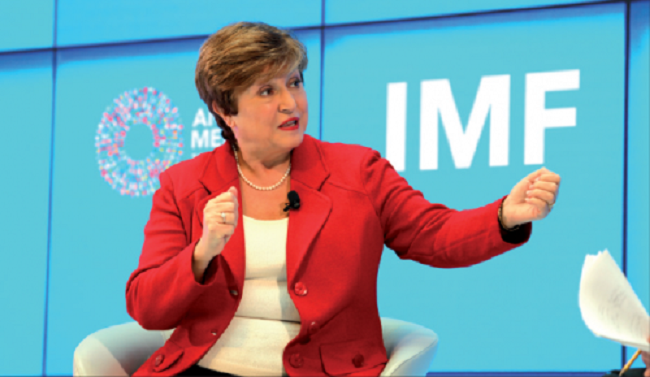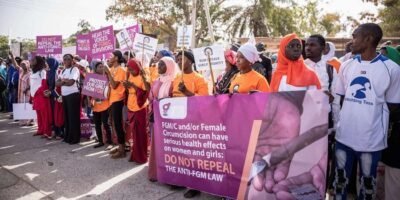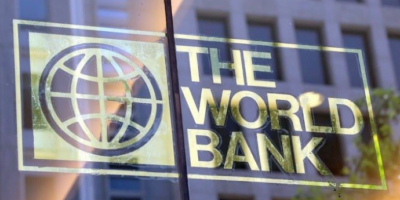IMF: Ukraine War Threatens Africa In Food, Fuel Prices

- Okays $1.4bn emergency financing for warn-torn country
The Managjng Director of International Monetary Fund (IMF), Kristalina Georgieva, has warned that the war in Ukraine threatens to undo Africa’s progress in recovering from the damage of the COVID-19 pandemic and presents new challenges for the continent.
She expressed IMF’s readiness to help African countries reduce the cost of any needed policy adjustments through policy advice, capacity development and lending, adding that recent reforms to the Fund’s lending toolkit provide greater flexibility to help meet financing needs.
In a statement on Thursday, the IMF chief said policy makers at a meeting of African finance ministers and central bankers expressed concerns about their domestic policy space to address the ongoing crisis.
According to her, Africa is particularly vulnerable to the impact of the Ukraine war through four main channels — increased food prices, higher fuel costs, lower tourism revenues and potentially more difficult access to international capital markets.
She said:
A recalibration of policies appears inevitable in many countries.At this difficult moment, the fund stands ready to help African countries reduce the cost of any needed policy adjustments through policy advice, capacity development and lending. Recent reforms to the fund’s lending toolkit provide greater flexibility to help meet financing needs.
The IMF in 2020 provided 13 times its average annual lending to sub-Saharan Africa and increased access limits to its zero-interest lending that comes mostly without the fund’s traditional conditions.
The IMF also disclosed that its executive board has approved $1.4 billion in emergency financing to support Ukraine amid the ongoing war with Russia.
The Bretton Wood institution, in a statement, said the executive board gave its approval on Wednesday night.
According to the IMF, the support comes from its rapid financing instrument (RFI).
The RFI provides rapid financial assistance available to all IMF member countries facing an urgent balance of payments need.
Expressing its strong support for the Ukrainian people, the IMF said the economic consequences of the war are already very serious, with refugee flows of over two million persons in just 13 days and large-scale destruction of key infrastructure in Ukraine.
It said:
This disbursement under the RFI, equivalent to 50 per cent of Ukraine’s quota in the IMF, will help meet urgent balance of payment needs arising from the impacts of the ongoing war and will provide critical support in the short term while playing a catalytic role for financing from other partners.
According to the global lender, Ukrainian authorities had cancelled an existing stand-by lending arrangement with the IMF but would work with the fund to design an appropriate economic programme focused on rehabilitation and growth when conditions permit.
Georgieva said the Russian military invasion of Ukraine had been responsible for a massive humanitarian and economic crisis.
According to her,
The tragic loss of life, huge refugee flows and immense destruction of infrastructure and productive capacity is causing severe human suffering and will lead to a deep recession this year.
Financing needs are large, urgent and could rise significantly as the war continues.
She said the financial support should help fill the financing gap and mitigate the economic impacts of the war, adding that:
Once the war is over and a proper damage assessment can be performed, additional large support is likely to be needed to support reconstruction efforts.
While applauding the emergency policy response of the Ukrainian authorities as remarkable, she assured Africa that the IMF would remain closely engaged with the authorities.
The World Bank had also on Monday approved a $723 million package of loans and grants for Ukraine.

Justin Nwosu is the founder and publisher of Flavision. His core interest is in writing unbiased news about Nigeria in particular and Africa in general. He’s a strong adherent of investigative journalism, with a bent on exposing corruption, abuse of power and societal ills.













